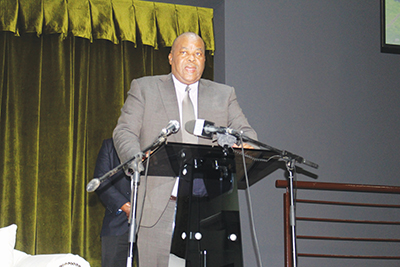By: Mpho Shelile
Maseru – The Ministry of Local Government, Chieftainship, Home Affairs, and Police has taken a significant step toward promoting sustainable land management and fostering inclusive, liveable communities in Lesotho. Recently, the Ministry hosted a kick-off meeting to discuss the development of the National Spatial Development Framework (NSDF), a crucial initiative designed to guide the country’s future housing, infrastructure, and development projects.
As part of its commitment to addressing existing challenges, the Government of Lesotho, through the Ministry, has secured funding for the engagement of a consultant to produce the NSDF. This framework will provide generalized spatial plans for each of the 10 districts, along with proposals to enhance land use management and control. The NSDF aims to establish a sustainable and equitable foundation for physical development across the nation.
The framework is expected to have significant implications for various ministries that play direct or indirect roles in shaping Lesotho’s physical environment. However, its benefits extend beyond governmental bodies, it will also serve citizens, businesses, District Councils, and the environment across the country.
In his opening remarks, Hon. Lebona Lephema, Minister of Local Government, Chieftainship, Home Affairs, and Police, emphasizes the NSDF’s critical role in shaping both urban and rural landscapes in Lesotho. He noted that while there are existing policies and legislation related to land use management, they are currently inadequate to address the challenges facing the nation.
“This inadequacy has led to issues such as illegal settlements and construction in unsuitable locations, which undermine sustainable development,” Hon. Lephema explaines.
The NSDF is envisioned as a comprehensive strategic plan that will offer guidelines for managing land resources effectively, thereby supporting economic growth, social equity, and environmental sustainability. Hon. Lephema highlights several key focus areas for the NSDF, including reviewing existing infrastructure and delivery challenges, analyzing demographic and settlement trends, assessing planning legislation, optimizing the location of government services, promoting national and economic development, establishing a National Spatial Data Infrastructure (NSDI), and conducting Strategic Environmental Assessments.
He further elaborates that the overarching goal of the NSDF is to cultivate a more informed public service that understands the vital role of land management in sustainable development. “At a general level, this project should result in a more knowledgeable public service regarding the importance of land in the overall sustainable development of Lesotho,” he concludes.
Mrs. Masebele Mponya, the Commissioner of Land, echoes these sentiments in her remarks, emphasizing the government’s commitment to driving transformative change across all sectors of society through the NSDF initiative. She highlights the framework’s potential to foster significant progress in areas such as economic growth, human development, governance, and environmental protection.
She also points out that the meeting’s focus was to promote the development of inclusive, resilient, and sustainable cities and communities. “The management of land is of critical importance to numerous countries, and particularly to Lesotho,” Mrs. Mponya asserts, underscoring the essential role that effective land management plays in achieving sustainable development.
Mrs. Mponya concludes by stressing that the success of the NSDF depends on the active collaboration and commitment of all involved sectors, including government agencies, private sector stakeholders, civil society, and local communities. She called for a united effort to implement the framework effectively, ensuring it delivers tangible benefits for all citizens.
The meeting brought together key stakeholders from various sectors, including government officials, urban planners, environmental experts, and representatives from civil society organizations. These participants engaged in robust discussions on how the NSDF can best serve the interests of all Basotho while promoting sustainable land use practices.
In his remarks, Mr. Khalid Jacobs, Director of Jakupa Tony Mansee JV and a member of the NSDF consultant team, reflects on his journey in Lesotho, which began in 2021. He emphasizes the strong collaborative efforts between the Lesotho and South African offices of Jakupa Tony Mansee JV, ensuring that their combined expertise and resources are fully leveraged to achieve the best possible outcomes for the National Spatial Development Framework (NSDF).
“We are committed to working closely with all stakeholders in Lesotho to deliver a framework that addresses the country’s unique challenges and supports sustainable development,” he states. Mr. Jacobs underscores the importance of partnership and teamwork, assuring that their approach will be rooted in cooperation and a shared vision for a sustainable future.
The development of the NSDF represents a crucial step forward in Lesotho’s quest to create a more inclusive and resilient society. With effective implementation, the framework has the potential to transform the country’s spatial planning landscape, ensuring that all Basotho can live in well-planned, safe, and prosperous communities.
The Ministry of Local Government, Chieftainship, Home Affairs, and Police remains committed to fostering a collaborative approach that includes all stakeholders in shaping a sustainable future for Lesotho.


